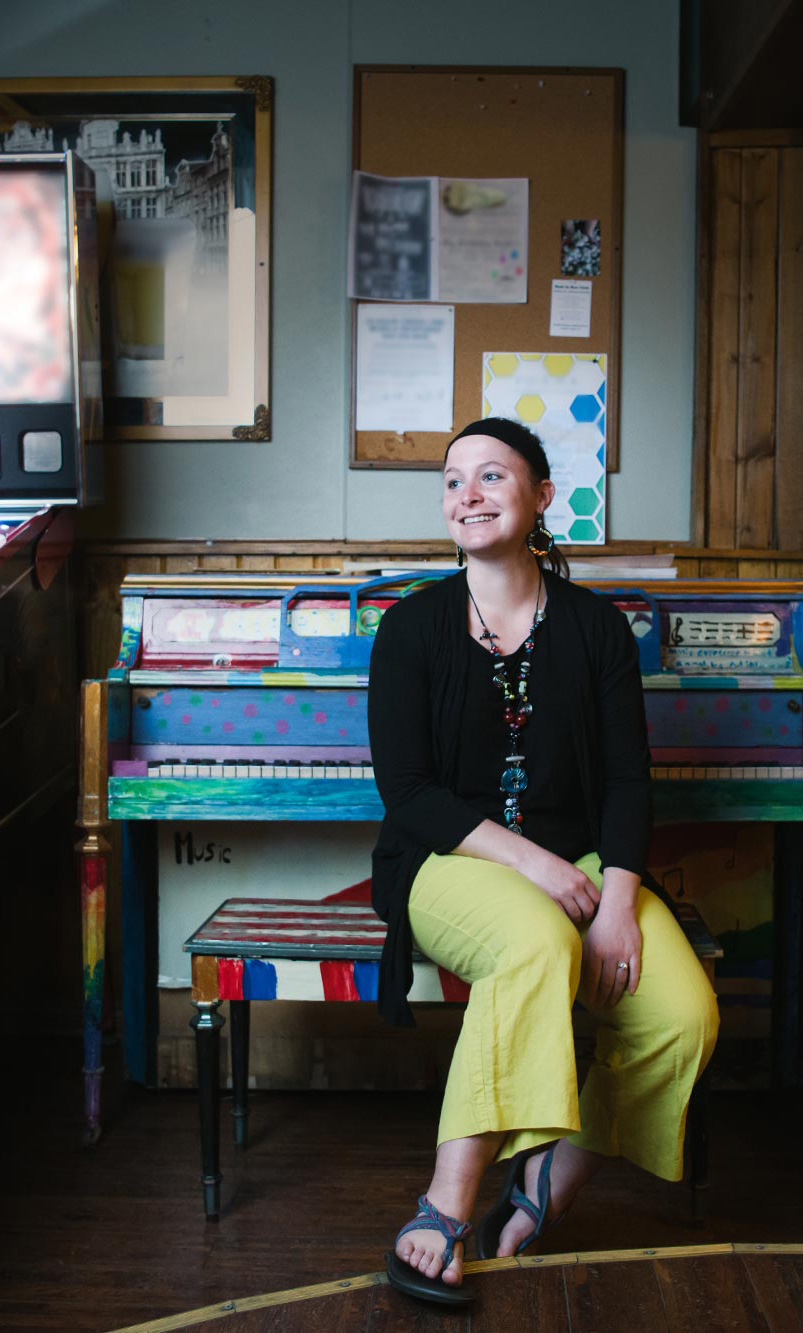
Dr. Patricia Izbicki, Neuroscientist, Science Communicator, Relationship Builder and Musician • UWF Alumna ’14
Meet the Argo with music on the brain!
Beethoven, Mozart, Bach and other classical and contemporary musicians have found their way into the lab. This neurological research study is Dr. Patricia’s brainchild. It all began when her love for music and love for the brain struck a chord at UWF.
By Mark Gause
Music can lift your mood, make you move and shake your groove thing, and improve your cognitive skills. Dr. Patricia Izbicki, a classically trained pianist and scientist, is traversing the current landscape of neurological research on the interaction of music and the brain.
At an early age, children pick up a band instrument. They spend hours on a piano bench learning how to play, march across football fields in intricate formations while belting out a classic or remixed pop tune, and serenade their family and friends in auditoriums and concert halls.
A few continue to play as adults. While others pick up an instrument later in life to rock out in dive bars, strum away at the local honkytonks or sweeten the air in amphitheaters.
Some say they have an ear for music. A passion to play or perform. But what makes the brain of a musician different from non-musicians? Is there a difference? Do musicians’ brains function differently? Do the brains of musicians and non-musicians perform differently as we age?
Dr. Izbicki is looking for answers to these complex questions and others.
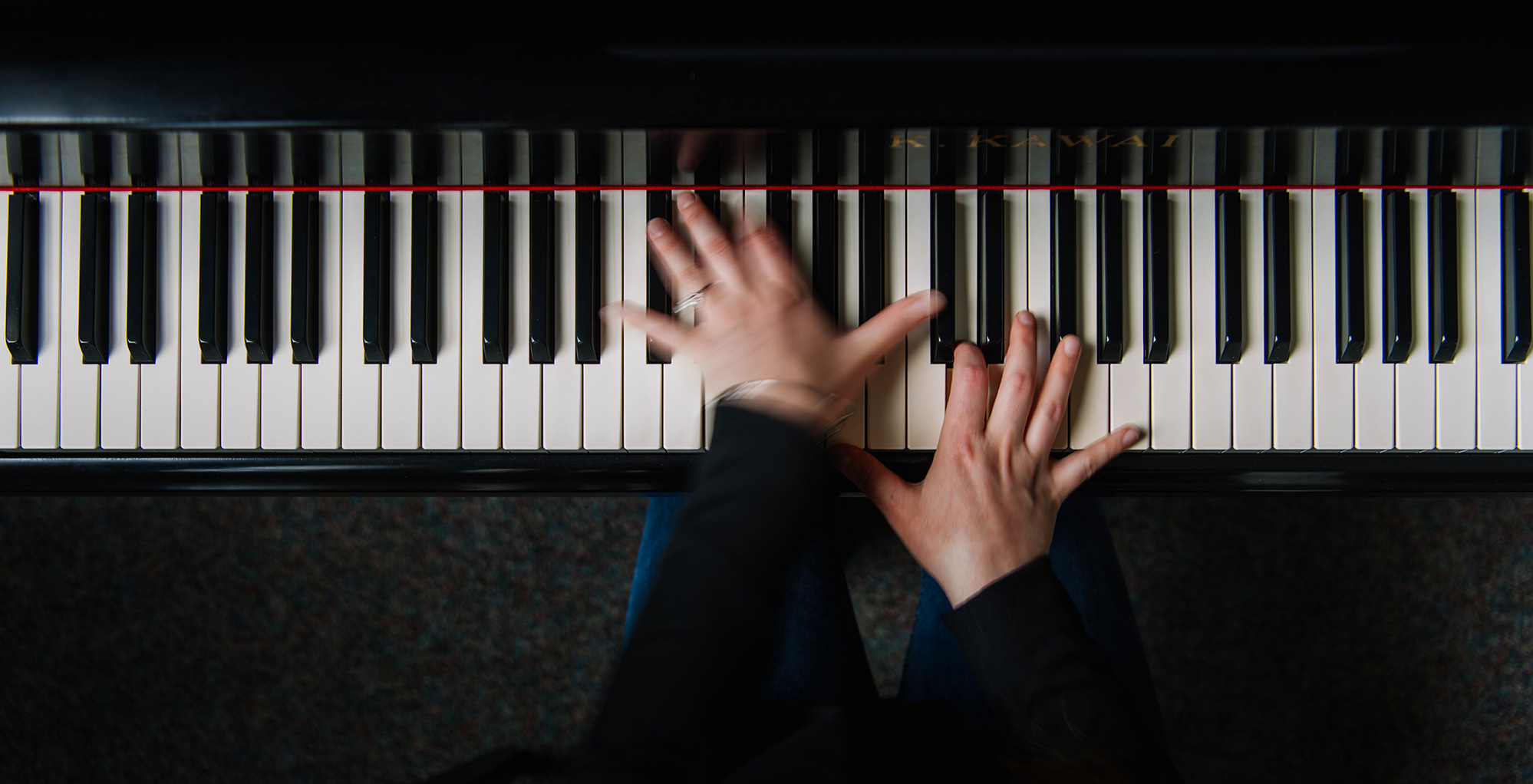
The chorus playing in Patricia’s head is how to reduce the burdens of neurological and psychiatric disease on society.
Her research is putting the brains of musicians on center stage. Her work in STEAM Education, strives to expand our knowledge and understanding of how performing music involves intricate circuitry in the brain. Can these insights be harnessed for our health and wellness in daily life? Can they foster music interventions to prevent and treat cognitive and motor decline among older adults?
This need to know and burning desire was fueled by Patricia’s professors at UWF. They encouraged her and applauded her. Today, her love for music and passion for the brain has resulted in numerous published papers, a fellowship at the John Hopkin’s University, recognition in this field and a series of awards, as well as national and international speaking and lecture opportunities.
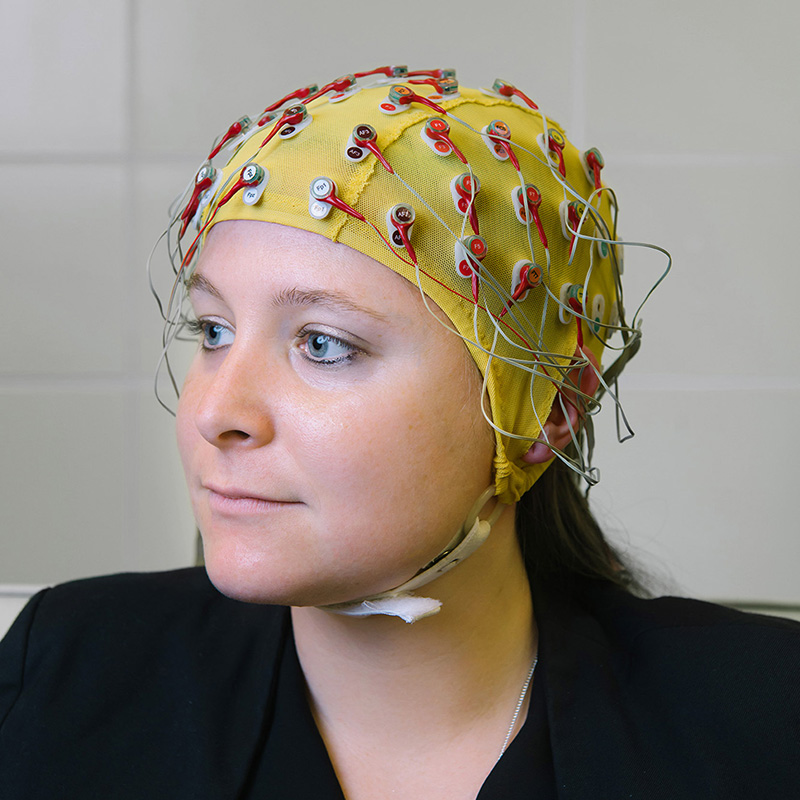
At Johns Hopkins Medicine Brain Science Institute, Patricia drafted scientific literature and sensory, biological, and behavioral assessments to inform the Impact Thinking Design of a sensory healing room for children with disorders of consciousness at Kennedy Krieger Children’s Hospital. She curated an article which explored the effect of music on biomarkers of stress. Through a close collaboration with experts and key opinion leaders in the field, Patricia also published articles on music and the brain in Alzheimer’s disease and society.
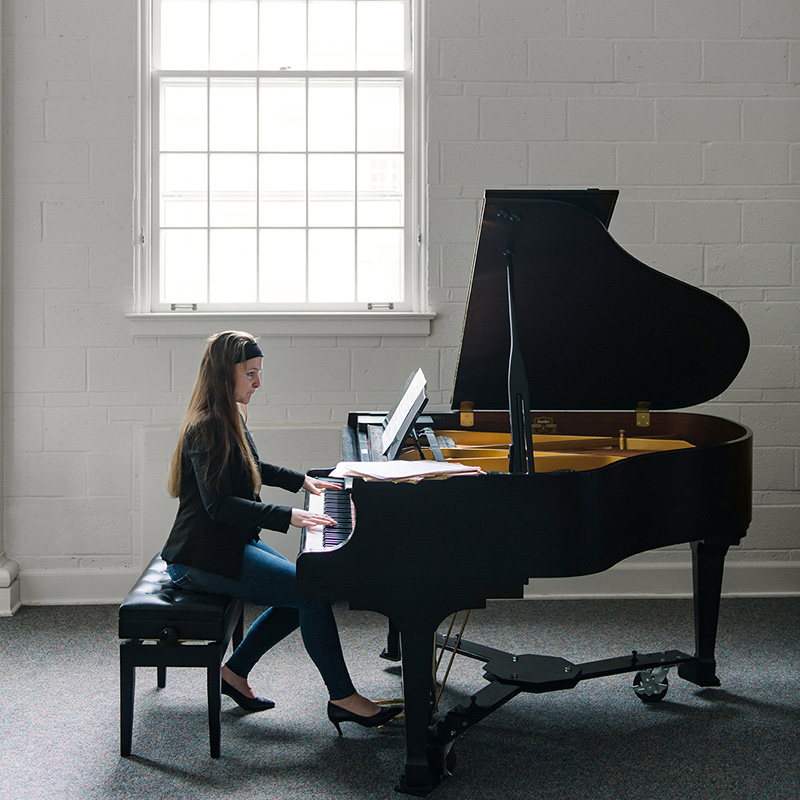
While pursuing her Ph.D. and research at Iowa State University, Patricia formed a partnership with the Ames Parks Department to create the Ames Public Piano Project. A number of pianos were reconditioned and placed on downtown sidewalks for shoppers and local business owners to play and enjoy. Students and locals, we also encouraged to use these piano as a canvas to showcase their artistic talents as painters. These pianos were a big hit! On rainy days, the pianos are covered and protected by local business owners. Over the snowy winter months, the pianos are sheltered indoors at a few proud and grateful downtown establishments.
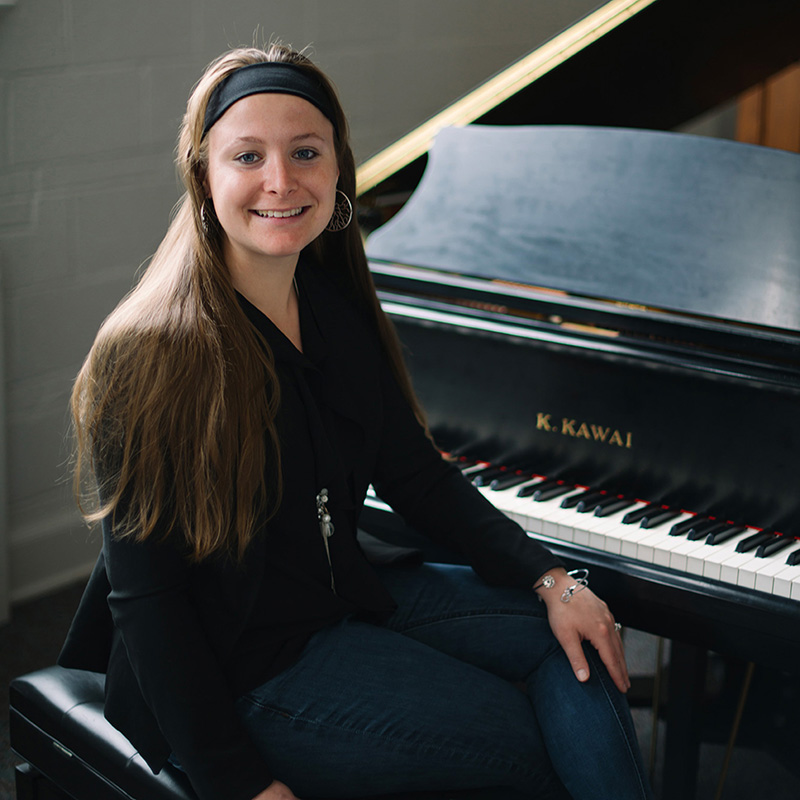
Dr Izbicki is on a mission to amplify human potential. A musician and scientist, she is driven to contribute to the field of medicine by being an unbiased, reliable source of medical knowledge to improve quality of life of patients all over the world. Far from a solo artist, her mission is to initiate scientific interactions, exchanges and building and maintaining relationships with patients, caregivers, researchers and clinicians to produce the best health outcomes for patients.


